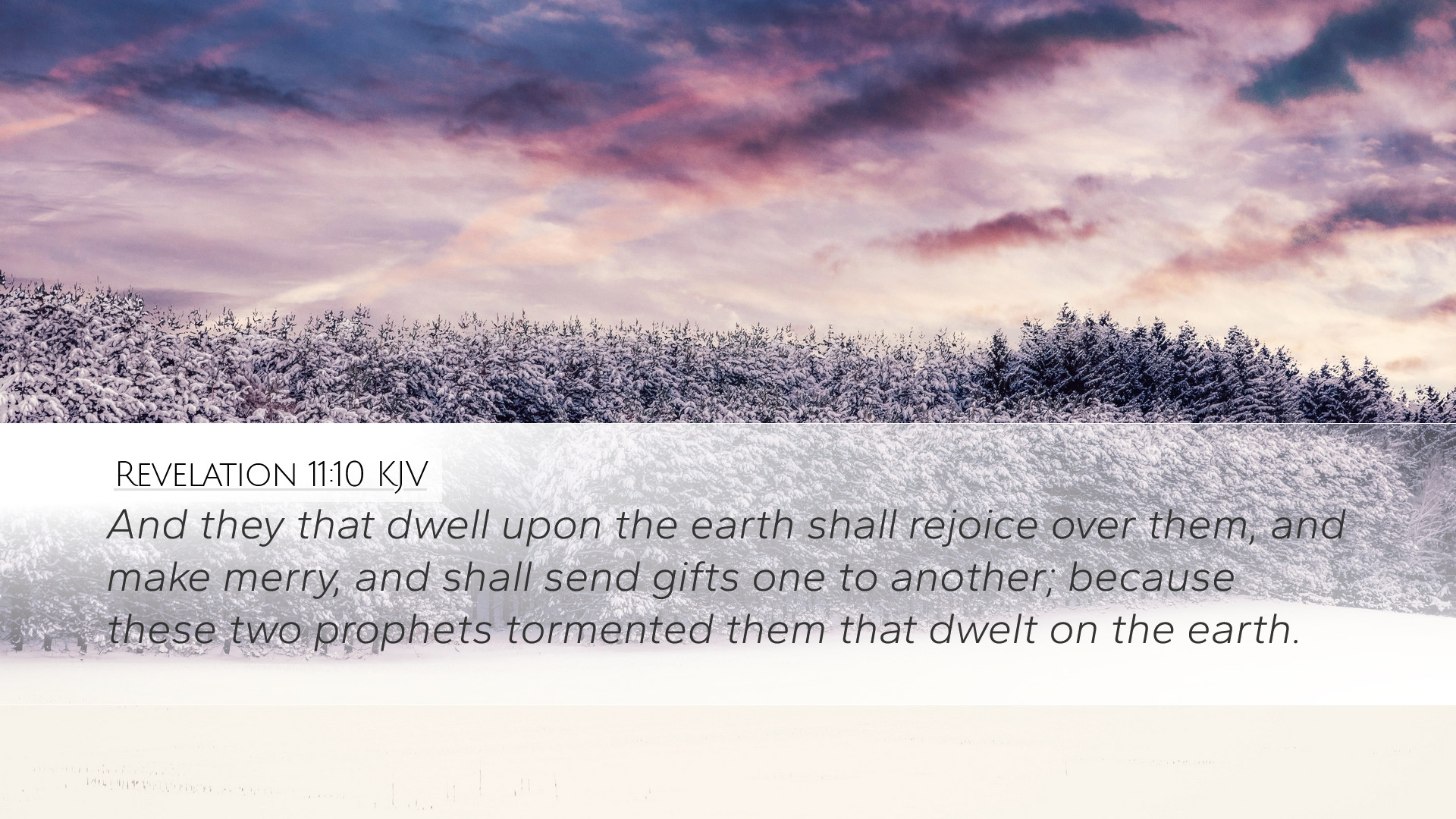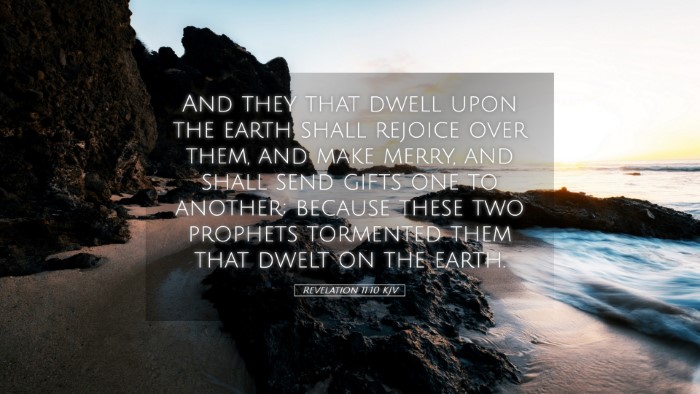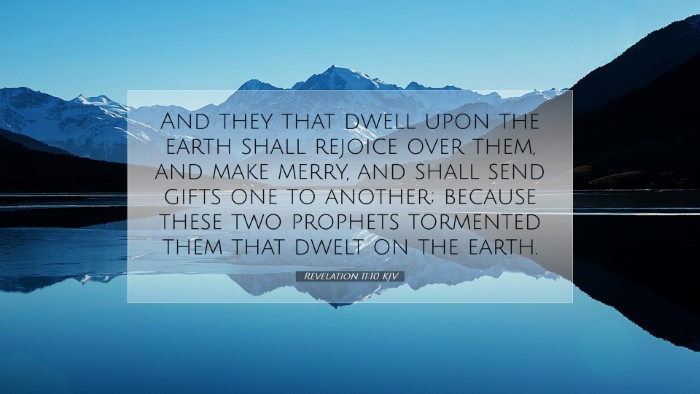Commentary on Revelation 11:10
Revelation 11:10 states, "And they that dwell upon the earth shall rejoice over them, and make merry, and shall send gifts one to another; because these two prophets tormented them that dwelt on the earth." This verse encapsulates the reaction of the world to the death of the two witnesses sent by God. The Global commemoration of their demise, compared to festive celebrations, reveals the profound animosity towards God's messengers in the last days.
Contextual Background
To understand Revelation 11:10, we must look at the surrounding context of the chapter. The chapter introduces two witnesses described as two olive trees and two candlesticks standing before the God of the earth (Revelation 11:4). They are granted power to prophesy and perform miracles, but they ultimately face death at the hands of a corrupt world. Their resurrection and ascension serve as a divine response to the celebration of their demise, emphasizing God's ultimate sovereignty and justice.
Insights from Commentators
Various public domain commentaries provide critical insights into the meaning and implications of this verse.
Matthew Henry's Commentary
Matthew Henry highlights the irony of the world's joy in the face of God's judgment. He notes that the "earth dwellers" symbolize those who reject God's message and experience a false sense of security when His prophets are silenced. This joy is short-lived, as it reflects their impending judgment rather than any genuine happiness.
Albert Barnes' Notes
Albert Barnes emphasizes the dual nature of the witnesses' ministry: they served both as messengers of hope and instruments of judgment. Their deaths invoke celebration among their enemies, reflecting the fallen human condition that despises truth and righteousness. Barnes also points out that the phrase "send gifts one to another" indicates a twisted form of camaraderie among those who oppose God's will, highlighting a moral decay prevalent in the world at that time.
Adam Clarke's Commentary
Adam Clarke delves into the significance of the two witnesses, suggesting they represent the Law and the Prophets or possibly key figures in Christian history. He notes that their martyrdom leads the earth’s inhabitants to display a grotesque joy indicative of a world far removed from God's presence. The sending of gifts symbolizes a perverse celebration of their defeat, akin to celebrating a holiday in the midst of profound spiritual blindness.
Theological Reflections
This verse serves as a stark reminder of the contrasting responses between the faithful and the world. The revelry of the earth's inhabitants in response to the prophets' deaths challenges contemporary believers to examine their own responses to God's messengers.
- Spiritual Warfare: The deaths of the prophets signify the ongoing spiritual conflict between God's Kingdom and worldly powers, emphasizing the importance of perseverance in faith amidst opposition.
- God's Justice: While the world may rejoice temporarily, Revelation teaches that God's justice prevails, reminding believers of the futility of opposing His purposes.
- Witnessing Amidst Persecution: The experience of the two witnesses encourages Christians to remain steadfast in their call to witness, even in the face of hostility and persecution.
Practical Application
As leaders and scholars reflect upon Revelation 11:10, they are called to:
- Embrace the Call to Witness: Understanding that prophetic voices may be challenged, yet are invaluable in revealing God’s truth.
- Encourage Resilience: Reinforcing the idea that joyful celebrations at the expense of truth may come, but ultimately, God’s truth prevails.
- Promote Unity: Fostering community among believers that withstands external pressures contrary to the gospel.
Conclusion
Revelation 11:10 serves not only as a narrative on the death of the two witnesses but also as a prophetic insight into the response of a world in enmity with God's will. From the reflections of Matthew Henry, Albert Barnes, and Adam Clarke, it is clear that this passage calls for a deeper understanding of the nature of prophetic ministry, the world’s reaction to it, and the ultimate triumph of God’s purposes. As believers engage with this scripture, it prompts an earnest reflection on their own witness and the inevitable truth that God reigns sovereign, even in the face of opposition.


